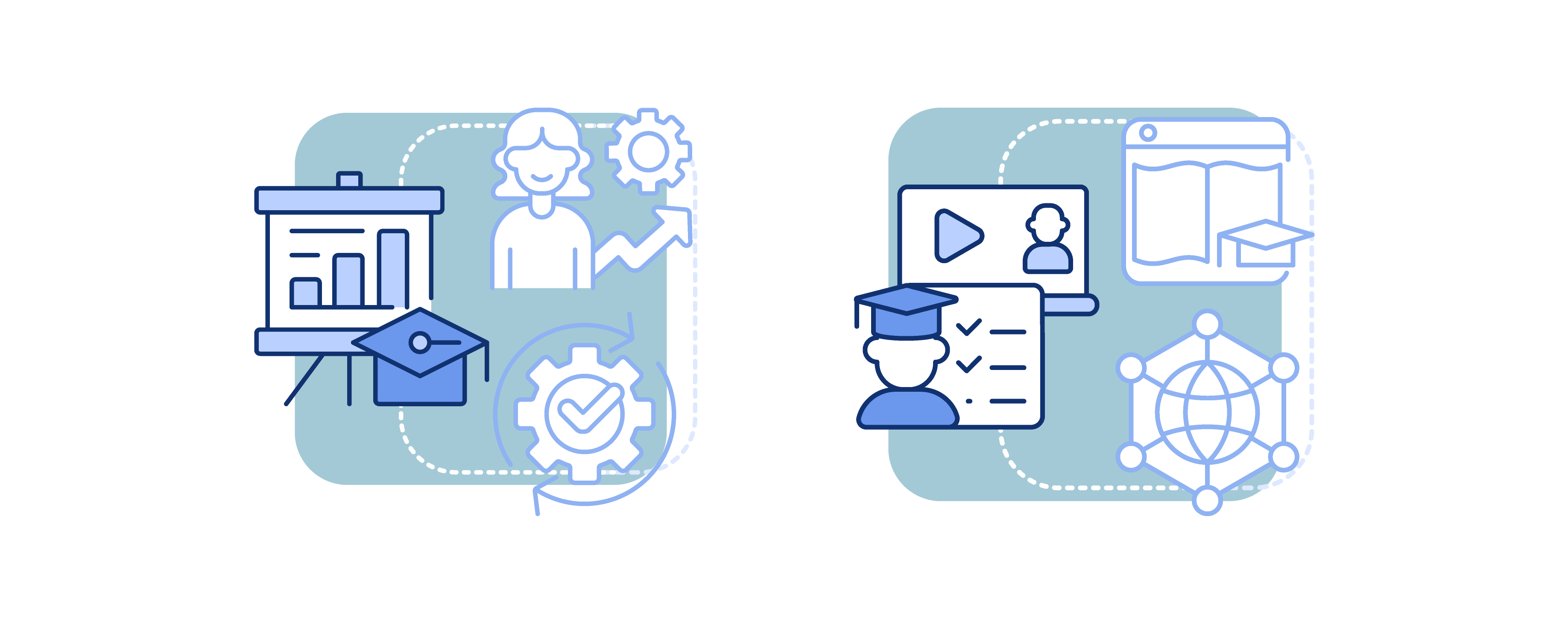The job market is unable to meet the current demand for tech professionals, as shown by strategic consulting firms like McKinsey & Company. As a result, there is a deficit of professionals to occupy certain positions that require individuals with specialized technological skills. This is where reskilling and upskilling gain more relevance and can easily become advantages.
What is Upskilling?
The term upskilling means further development of abilities, knowledge and skills that a professional already has, especially in the areas in which they are working. It is the act of improving knowledge on certain subjects, whether by expansion or updating.
What is Reskilling?
Reskilling is all about requalification, whether for working in a new position or updating a resumé to become more relevant in the job market. Therefore, reskilling means learning new abilities and skills, allowing professionals to transition to different areas to meet emerging needs, which generates different work opportunities.
Reskilling also showcases another trend: internal reallocation in organizations. According to a 2021 LinkedIn survey, employees of companies that promote more internal mobility remain at the same place for twice as long, on average.
An important survey called The Future of Jobs Report 2020, produced by the World Economic Forum, indicated a trend of career turnaround through Reskilling and Upskilling strategies.

How can Upskilling and Reskilling help your career?
An interesting data point that this survey showed is that only 25% of an organization’s learning demand can be fulfilled internally. In other words, only 25% of the tasks that have to be learned or the skills that need to be acquired can be incorporated within the work environment. Employees have to seek the other 75% outside the workplace or companies end up replacing them with professionals that already have such knowledge.
The same survey mentioned that if a company increases productivity of the education process by 15 to 20%, it will double the number of positions that can be reallocated internally, instead of having to hire a new, outside professional.
Especially in a market like technology, which suffers from a lack of professionals with qualifications and seniority, upskilling and reskilling are strategies that make an increasingly competitive resumé. On the other hand, by investing in an employee to accelerate their training in a skill, the company gains with engagement and fills a position that was previously vacant and difficult to replace from the job market.

How can you get started?
First, you need to assess whether your needs are geared more towards upskilling or reskilling, i.e., whether your goal is to stay in the same area of activity (upskill) or migrate to another sector (Reskill).
Once that is defined, it is important to search for a solution that fits both your time and budget. An online course can often provide what you are looking for. If you don’t have anything in mind yet, we compiled a list of suggestions focused on hard and soft skills:
Hard Skills (technical competencies)
Here are some examples of top-rated Hard Skills in technology according to LinkedIn:
- Operating systems
- Scrum
- Git
- JavaScript
- SQL
- Node.js
- TypeScript
Soft Skills (behavioral abilities that influence how we work and interact with others)
The Future of Jobs Report 2020 listed the 11 most important interpersonal skills for the future:
- Resolution of Complex Problems
- Critical Thinking
- Creativity
- People Management
- Social influence and leadership
- Analytical thinking and innovation
- Resilience, tolerance and flexibility
- Emotional intelligence
- Persuasion and negotiation
- Time management
- Active learning
In general, Hard Skills can be relatively simpler to achieve and acquire. With time and dedication, professionals are capable of studying and practicing to perfect technical skills. Soft Skills, on the other hand, can be acquired in different ways. Since they are more subjective abilities, they may require an internal process of self-knowledge and emotional intelligence.
About Alstra
Alstra is a solution that allows experts from different areas to work on strategic projects for top companies around the world. It helps leading companies access agile, flexible and on-demand hiring to continue innovating in the new world of work. Register for free.
